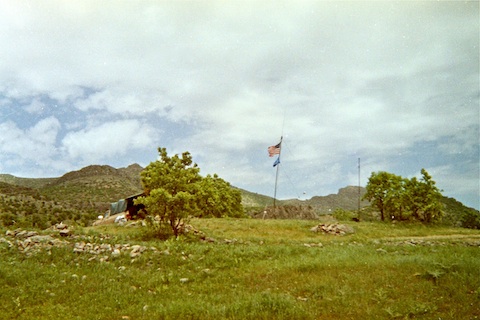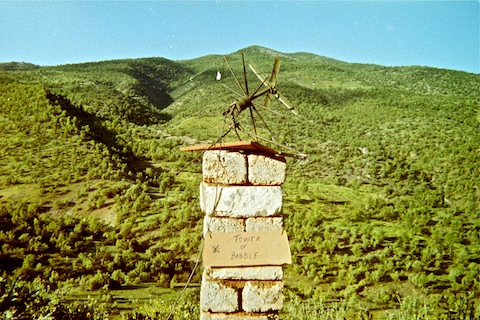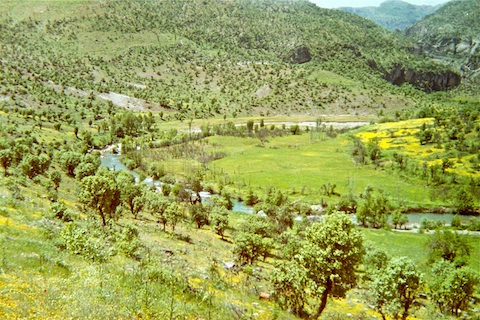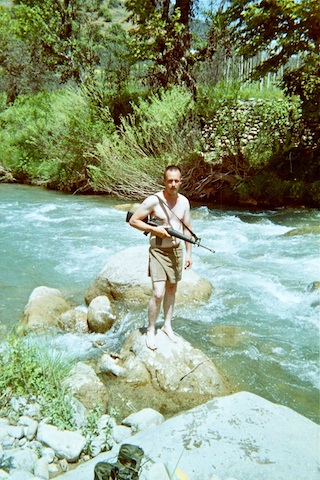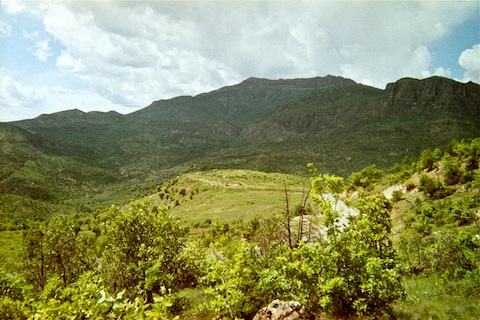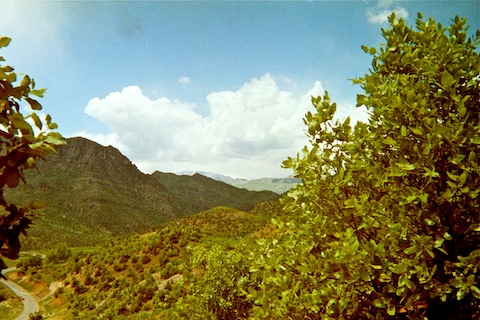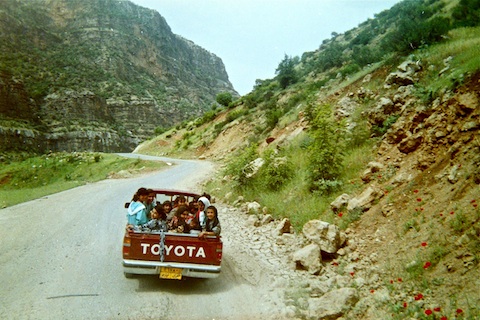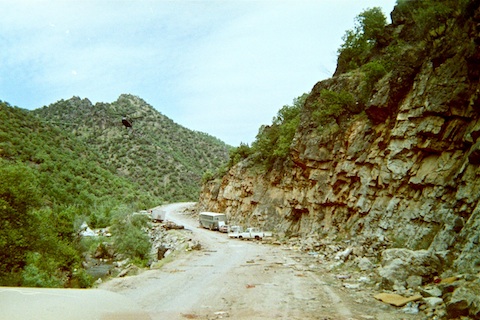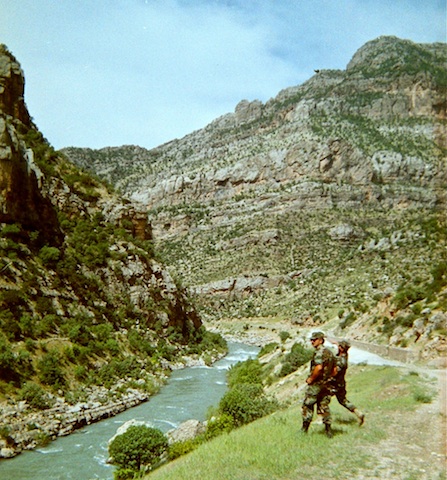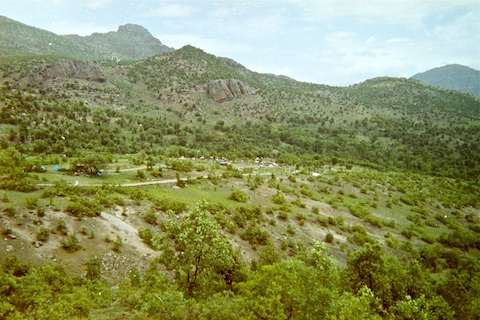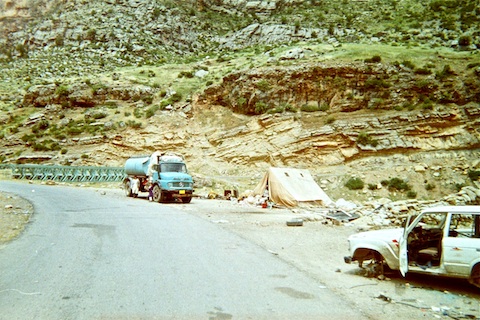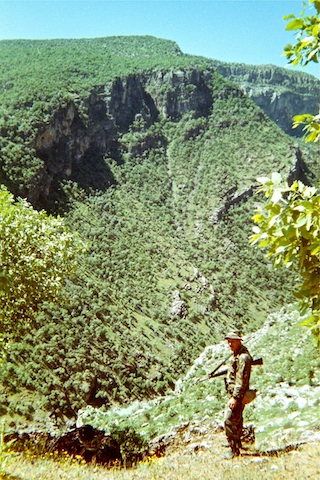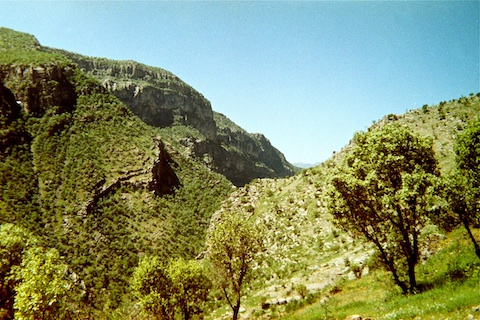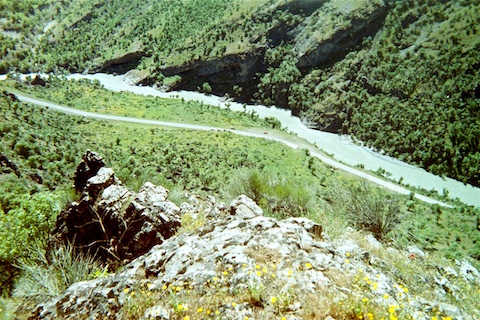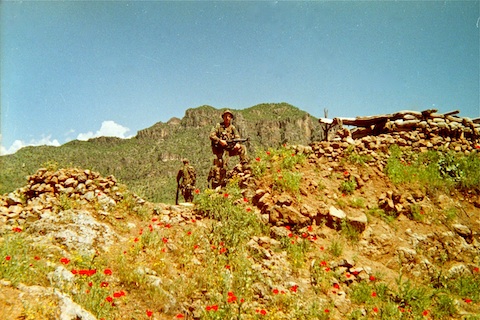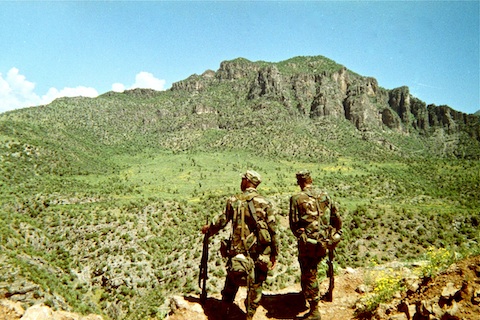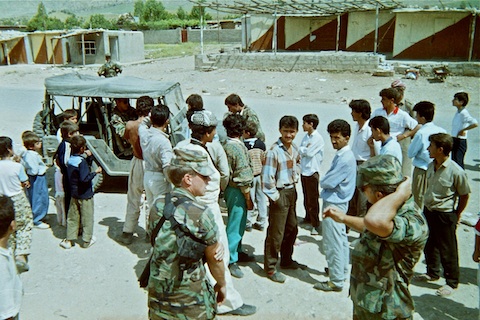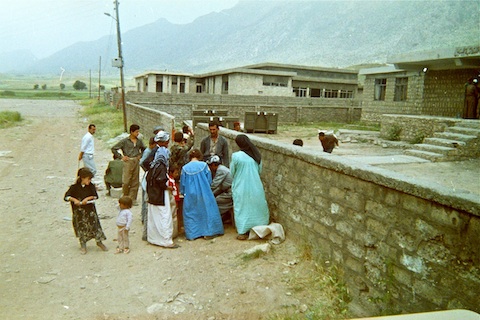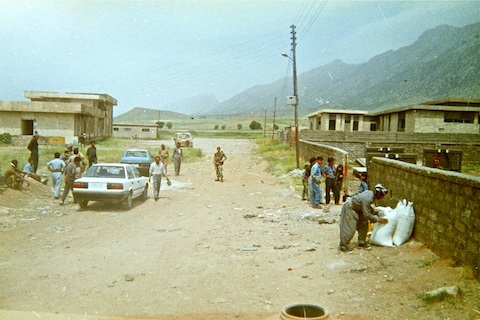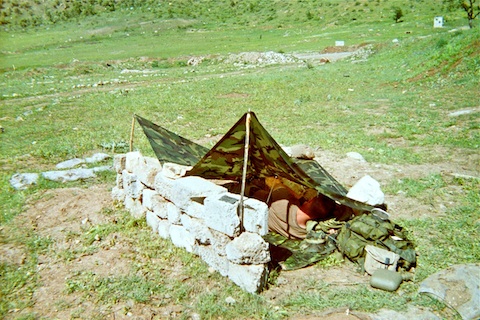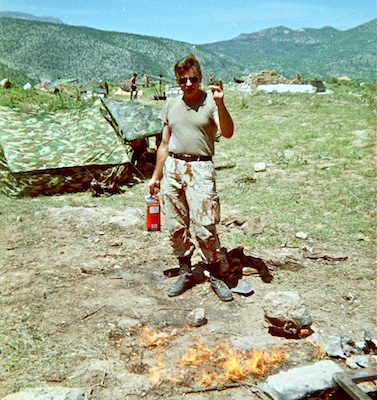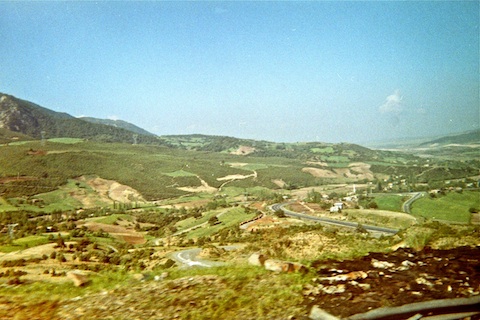The Kurdish Detour
Silopi, Turkey—The unit began its movement to Zakho on Friday, April 26. Troops rode in commercial buses and the sights were unforgettable: ruined castles from the Crusades, numerous dirt-street villages on ancient mounds of earlier villages; outdoor cafes; donkey carts; lush green fields, and some brilliant red fields with crops of poppies; and finally, the impressive mountains which were to provide the daily back drop for all the work of the 432nd for the next five weeks.
The final sights of the trip however were equally memorable: the bridge over the historic Tigris River which sustained the early civilizations of Mesopotamia; the uneventful border crossing into Iraq, with its destroyed vehicles along the road, reminding people of sights in Kuwait City; and, once again, more mountains, and historic ones at that. Noah supposedly settled his Ark on one of these peaks. Later in history, a Greek general named Xenophon, who was involved in Alexander the Great’s conquest of Persia, wrote a book almost wholly devoted to complaining about the attack of Kurdish warriors in the mountains of this region. The title of the book, The Anabasis, translated means “The Journey Back.” For the 432nd there was an intriguing parallel: the warriors now had lost, and this unit’s “journey back” would entail saving the people Xenophon, and now Hussein, were trying to annihilate.
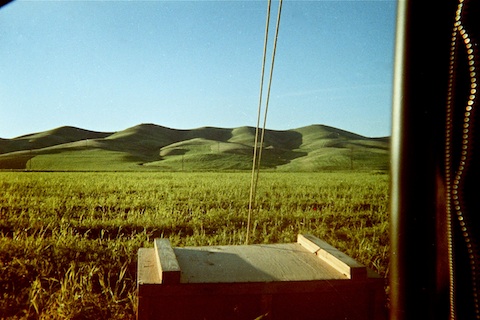
McMurry’s Notes
- What really made our bus trip memorable crossing the border. We arrived at the border in the late afternoon. After waiting three hours for the Turkish police to grant us permission to cross, we resumed our journey. (“Permission? We’re helping you people, we’ll do what we want!” would have been my response.)
A few miles later, on the outskirts of Zakho, we stopped. With headlights on, interior lights blazing, our XO spent 30 minutes vacillating about what to do next. Every few minutes I’d ask, “Uh, sir, maybe we should turn out the lights?” We had no ammo, we had no weapons and we had no armed escort. The XO hadn’t even put out perimeter security (not that it would have done any good without weapons.) We were sitting ducks. Then, black forms like spirits rose from the mist. Thankfully, it wasn’t Iraqi terrorists — it was a Dutch commando team wanting to know what the hell we were doing.
We finally pulled into ‘camp’ about 10:30 p.m. We didn’t have any of our equipment either — it had been put on a flatbed truck that was in a different convoy. At the time the ‘camp’ was only a few dozen scattered tents, nothing like the city of 25,000 it would eventually become. Thanks to an engineer captain who procured a sleeping bag from the U.N. supply I had something to sleep in. I still have that sleeping bag. With the exception of a few months spent in Bosnia in 1996, I’ve slept in it every night for 10 years.
Whether it’s equipment or weapons, I learned a lesson: No matter what the chain-of-command says never, ever travel without your gear. Always bring some of your stuff with you. You’ll be glad you did.
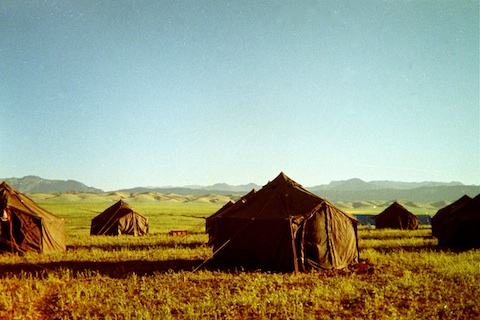
Beautiful plains east of Zakho. They would soon be worn to dirt. - Chameju, Iraq—After a week in Camp 1 (Redeye), Captain Scholz and I went up to the mountains with a Special Forces B team. We flew into our LZ at dusk. The LZ was on a small plateau about halfways down the side of a mountain. A road split the plateau in half with the LZ on one side and our base camp on the other. At the bottom of the mountain was a small river that wound its way through the incredibly deep canyons of northern Iraq to eventually join up with the Tigris River near Suri.
Because an ODA had already already secured the nearby hill tops, we immediately set about setting up our base camp. A mad scramble ensued for the bricks and stones (remnants of an Iraqi outpost) that littered the plateau. I managed to grab enough to construct one wall of a lean-to. With a poncho for a roof, it made a pretty decent little hooch. It wasn’t long enough though — every time it rained my feet and head got wet!
Normally our supply helicopters would fly up the valley, but one day a few weeks after we arrived they chose to fly across it. The double-rotored Chinook flew about ten feet over my head. That was the end of my hooch, and everyone else’s too. The Iraqis couldn’t have devastated our camp as thoroughly if they had dropped a mortar barrage in the middle of it. That was okay though; by the time that happened Captain Scholz and I were ready to return to Camp 1.
- May 11 letter home
| Page 24 | Page 25 | Page 26 |

